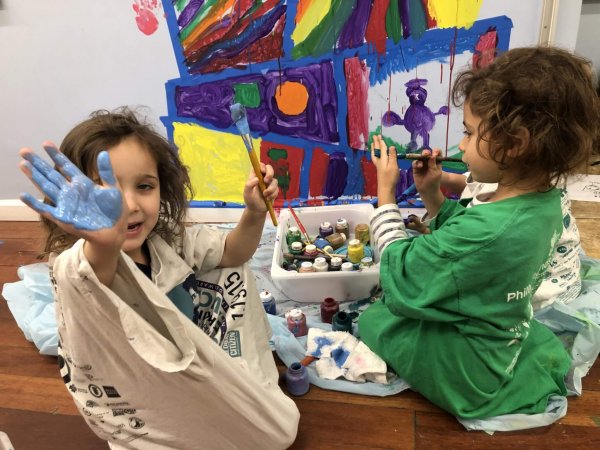
Way back in September, our learners started exploring the text of Migdal Bavel (the Tower of Babel). Over the course of the last three months we really dug into that text and pulled it apart. We looked to the people in the story for examples of some great ways to treat each other and some not-so-great ways to treat each other. And now we’ve come out the other end with a fabulous, collaboratively-built brit (two-way promise) that I’m so proud to share with you. Let’s start with a quick summary of the story and then some snapshots of our journey.
Right after most of the world was destroyed by the big Flood, all the people gather together in a place called Shinar. They all speak the same language. They decide to build a city with a big tower in the middle to help keep them clustered together. God comes down to look at what they’re building and does not approve. God says, “Let’s mix up (babble) their speech and spread them all over the world.” So the people were made to spread out and speak different languages, which is why the tower is called Babel.
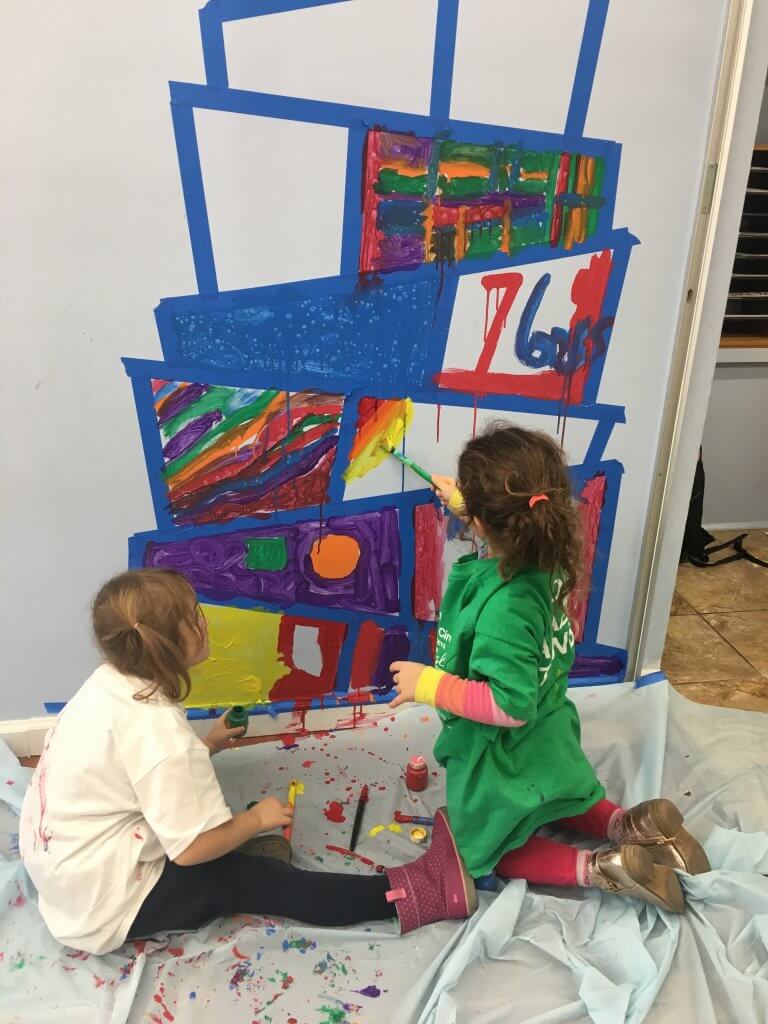
Here’s some of the unpacking we did of that story and some of the ideas we took away from it to help us with our brit:
- Rashi helped us reflect on the conflict that can arise when people aren’t speaking the same language – literally or metaphorically. We practiced taking time to understand each other and making ourselves understood, even in difficult moments and conversations.
- Why does the text say that God came down to see what was going on? Didn’t God already know? Rashi suggests that text wanted to teach us to really investigate a situation before making a judgement about it. We practiced listening to someone else’s side of the story before jumping to a conclusion.
- What was so bad about the tower in the first place? One commentary suggests that the people ended up valuing only their work and their building materials. They never got to rest and they cared more about bricks than each other. We brainstormed ways to show that we value people and that treating each other well is a priority for us.
- If the tower was such a bad thing, why was the people’s punishment so different from the punishment of the people who died in the Flood? Rashi argues that the difference was how the two groups of people treated each other: the people from before the Flood were mean to each other; the people who built the Tower were peaceful and loving. We reflected on how we can be peaceful and loving here at Makom Community, even when we’re upset or when we’re in conflict.
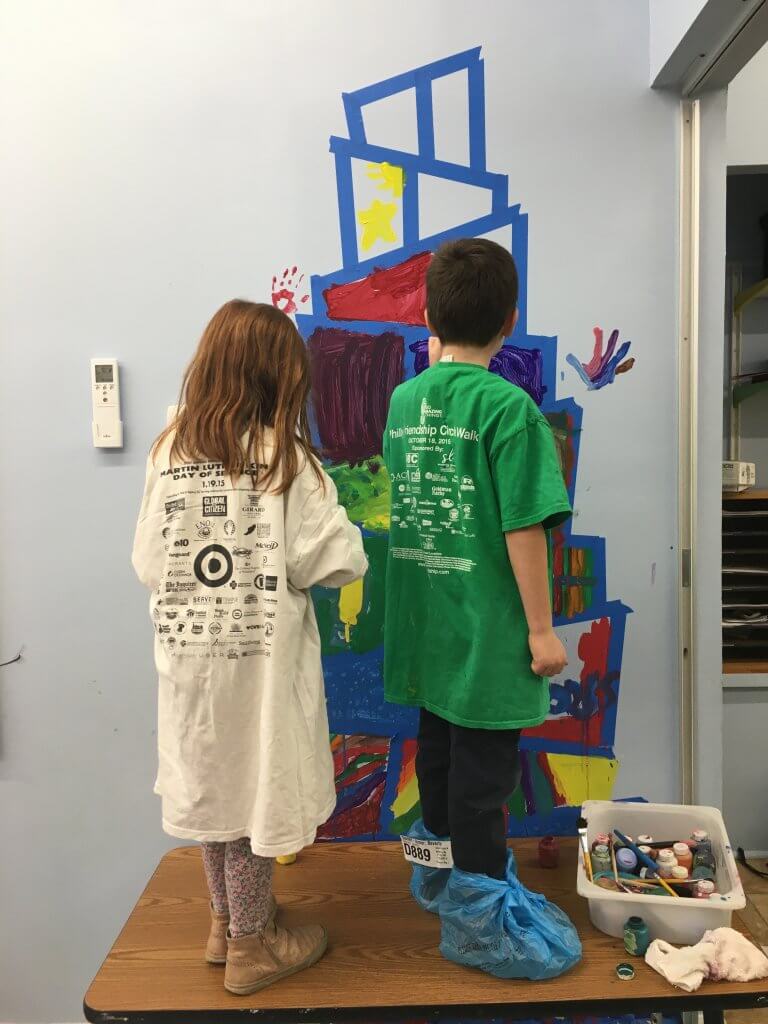
Even more games and conversations and reflections and dramatic reenactments made up the process to get us to our brit, but those are some of my favorites. I took the ideas from all three kvutzot (groups) from the whole unit and compiled them into a big list. The items on the list mostly fit into one of three categories: how we use our bodies, how we talk and listen, and how we include everyone. On Thursday, we divided our learners up into three groups. Each group got one chunk of the brainstorm list and summarized the ideas into 3-4 points. Then we came together to share our ideas, get on the same page, and make sure nothing was missing.
Here are some snippets from that conversation:
- We put something about believing each other into our idea, but the other group already said it, so we can take that part out.
- It says that we keep our bodies to ourselves, but sometimes we don’t! Can we change it to have something about getting permission?
- Being aware of our surroundings means knowing about the things around us, and respecting the space means noticing the people.
- I think being aware of our surroundings means that you notice what’s around you, and respecting the space means that you do something about what you notice.
- Sometimes we shouldn’t use one voice at a time, like when we’re singing in tefilah (prayer, music, and movement) together.
- What about not snatching toys from each other? I guess that’s part of playing fair.
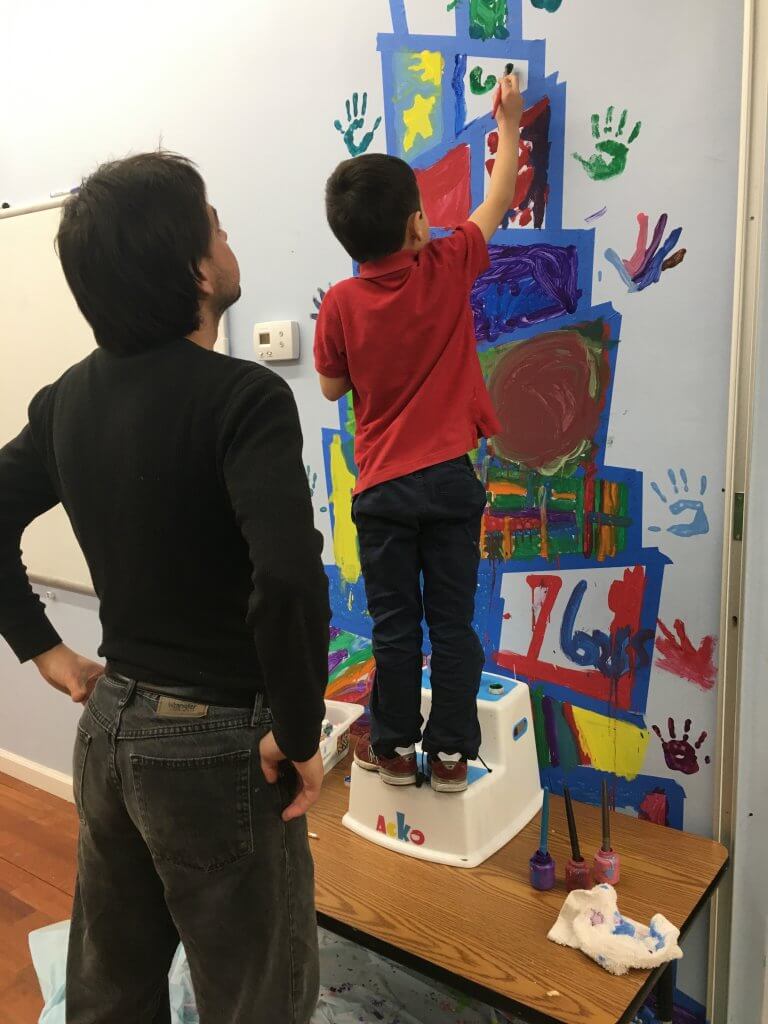
I love brit building with these kids! Every year I’m impressed with their thoughtfulness and caring. It’s so wonderful to watch kiddos who have participated in this process before notice new things, ask new questions, and act as leaders. It’s so wonderful to watch kiddos who have never built a brit with us have their voices and concerns heard, and stretch their patience and their understanding to participate meaningfully in a new and difficult process. So with awe and gratitude, I present to you the Makom Community 2019-2020 Brit.
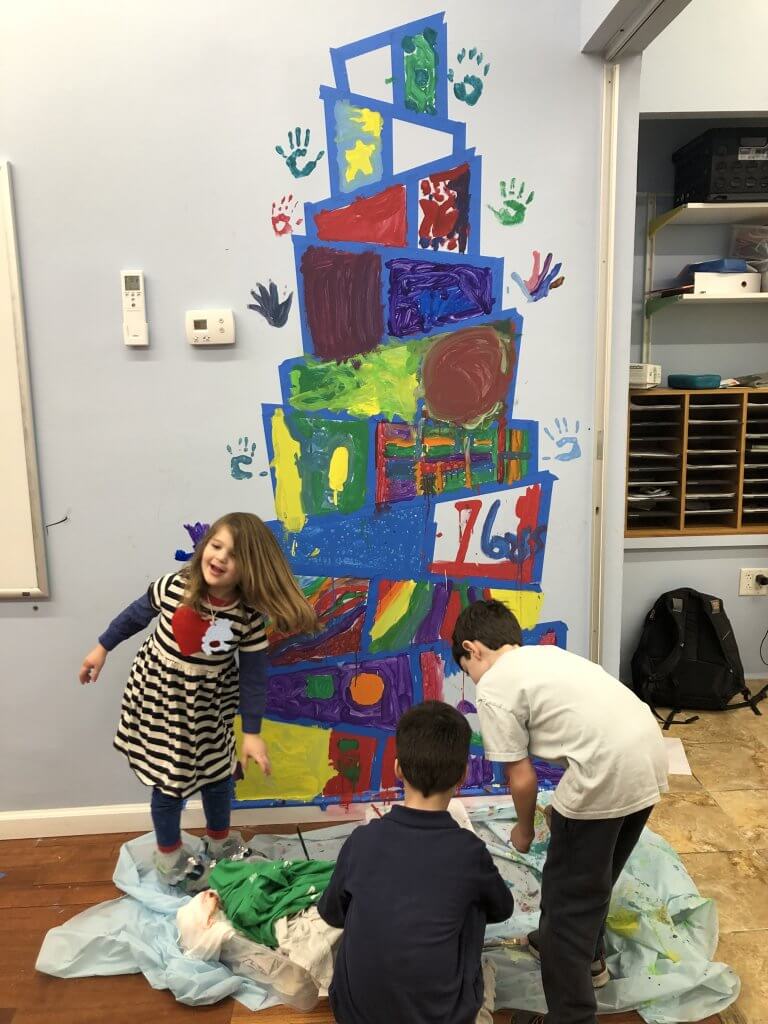
At Makom Community we:
- Keep our bodies to ourselves unless we get permission.
- Are aware of our surroundings.
- Respect our space.
- Respect others’ belongings.
- Are kind to everyone.
- Use one voice at a time when talking.
- Always tell the truth and believe each other.
- Invite others to play with us.
- Play fair.
- Help each other get what we need.
- Participate in ways that help others participate.
